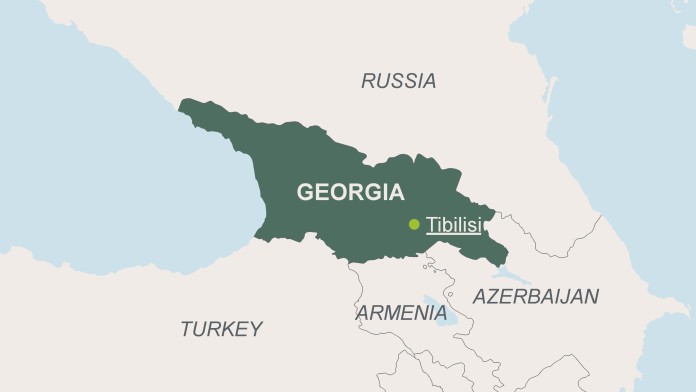
Georgia is a former Soviet state in the South Caucasus, in the immediate vicinity of Russia, Armenia and Azerbaijan as well as Turkey. The country can look back on a remarkable political and economic development in the last 20 years. Rapprochement with the EU is an important cornerstone of Georgia's domestic policy. Since 2009, Georgia has been linked to the EU through the Eastern Partnership and since 2014 through the DCFTA association agreement. As a result of the Russia-Ukraine war, the application for EU membership, which was actually planned for 2024, was brought forward. However, accession candidate status was first only held out in prospect and linked to further reforms. The BMZ assigns Georgia to the group of transition countries in German development cooperation. Georgia's increasing political and economic integration and its geographical location as an important link between Europe and Asia make it an important development partner country for both Germany and the EU.
Major development challenges exist in connection with energy supply, the education system, urban development and environmental protection.
The energy sector is of central importance for securing the energy supply in all areas. In addition, the demand for electricity has increased due to the high economic growth, among other things, so that the expansion of electricity generation as well as the expansion of the transmission grid is a top priority for Georgia's economic development. Despite the high growth rates, large parts of the Georgian population are still affected by poverty and unemployment. Unemployment is particularly high among young people, as the Georgian education system inadequately prepares students for the challenges of today's labour market. The provision of essential municipal services to the population is inadequate and often does not meet EU-like standards. Municipal infrastructure suffers from a decades-long investment backlog, and urban infrastructure is mostly dilapidated, oversized and inefficient. As a result, water supply and sanitation are proving problematic in many municipalities. Added to this are ecological challenges - the South Caucasus is a particularly biodiverse region that is threatened by deforestation and soil erosion.
KfW Development Bank has been active in Georgia since 1993. On behalf of the German Federal Government, it supports projects in the areas of:
KfW's commitment is aimed at modernising the vocational training system in Georgia. The process is supported by financing a "centre of excellence" for construction and logistics. These are two occupational fields that will become increasingly important in the future due to the country's geostrategic position between Europe and Asia.
KfW's support in the energy sector ranged from initial emergency supplies to investments in efficient power generation and distribution, and the promotion of renewable energies and energy efficiency. 90% of the electricity produced is generated from environmentally friendly hydropower. Thanks in part to the commitment of the German Federal Government through KfW, Georgia has been able to stabilise its electricity supply and is now a full member of the European Energy Union.
For many years, German-Georgian cooperation focused on the renewal and expansion of the entire drinking water and sewage systems in Batumi, among other places. In addition, the German Government, through KfW, is promoting sustainable regional development in the tourist regions of Imereti and Kazbegi, and is developing new approaches to climate and environmentally friendly urban mobility for Tbilisi and, in the future, also for Batumi. Furthermore, the development of a functioning waste and recycling management system to reduce waste and greenhouse gas emissions is being supported.
Through KfW, the BMZ supports the establishment and rehabilitation of protected areas and the sustainable orientation of forestry. The Caucasus Nature Fund was established in 2007 to finance the operating costs of the protected areas and thus ensure their long-term survival. Through the new instrument of contractual nature conservation, land users receive important impulses and financial incentives to use the valuable habitat between protected areas in a sustainable way and thus promote the protection of biological diversity.
The commitment of the German government through KfW Development Bank in Georgia makes an important contribution to overcoming various development policy challenges and thus contributes to energy security, better living conditions and environmental protection in Georgia.
KfW Office Tbilisi
Director KfW Office: Birgit Holderied-Kreß
Rustaveli Avenue 42
Griboedovi str. 31
0108 Tbilisi
Georgia
+995 32 220 03 20